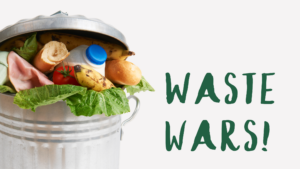Connecting with your child in the garden, in the kitchen and throughout the seasons.
Last October at the Melbourne University’s Festival of Ideas I attended a keynote presentation called“Developing a Love of Seasonal Fresh Produce from Childhood”. The talk looked at kitchen gardens, children’s eating environments in the school and food environments at home. Stephanie Alexander – founder of the Kitchen Garden Program (now in over 300 schools in Australia) – talked about the importance of positive modelling as one of the most powerful ways we influence our children and how kitchen gardens promote positive social behaviour, cultural awareness and social inclusion.
As a Mum and Naturopath/Nutritionist I am fascinated by the way in which kitchen and community gardens can bring about positive social change and positively influence eating behaviours. Gardening is a great way to engage in the wonders of nature, stop to watch the grass grow and ground the senses. I have fond memories of my son age 2 being a tiger in the grass and slowly sneaking up to ‘pounce’ on a broccoli plant devouring it fresh off the plant, raw and alive, or popping peas from the pod in the backyard straight into his mouth (before we ever had the chance to cook any!). Gardening is one of many activities young children can easily help out with enjoying spending time digging in the dirt, carrying pea straw or watering the garden. Not only do kids enjoy these sensual activities but they are also more willing to try new vegies particularly if they help choose things from the garden and get involved in making colourful, tasty dishes.
Good food modelling at home is sets the foundation for proper eating habits as our children grow into healthy young adults. Tastes and eating habits are shaped in early childhood and therefore it is important your child experiences as wide a variety of tastes as possible. This develops a healthy palate for your child’s and means they will be less attracted to calorie dense empty industrial food in the future.
Learning to cook and garden at a young age also ensures a certain degree of self-reliance and less dependency on pre-packaged and/or restaurant foods. Cook with your child, appreciate the things they cook for you (even if sometimes it may not be exactly what you had in mind) and enjoy the colourful plates a variety of fruit and vegetables brings into your lives. Use these experiences to talk to children and get them thinking about where food comes from and the benefits of seasonal eating verses a globalised food supply. Our children’s connection to food culture and nature has been heavily influenced by the industrial age and we need to arm our kids with knowledge one seed at a time.
If you don’t have the space to grow your own food you can still plant a few pots of herbs and focus on fun, messy kitchen activities or make a point of making the majority of the food in your home fresh, local, and seasonal. Get local, seasonal fruit and veggie boxes or visit farmers markets which support local farmers and reduce food miles while ensuring the freshest produce possible. Alternatively keep your eye out for your local community garden or join forces with a neighbour.
The joys of gardening and cooking together with your kids are the days you will look back upon and smile.



